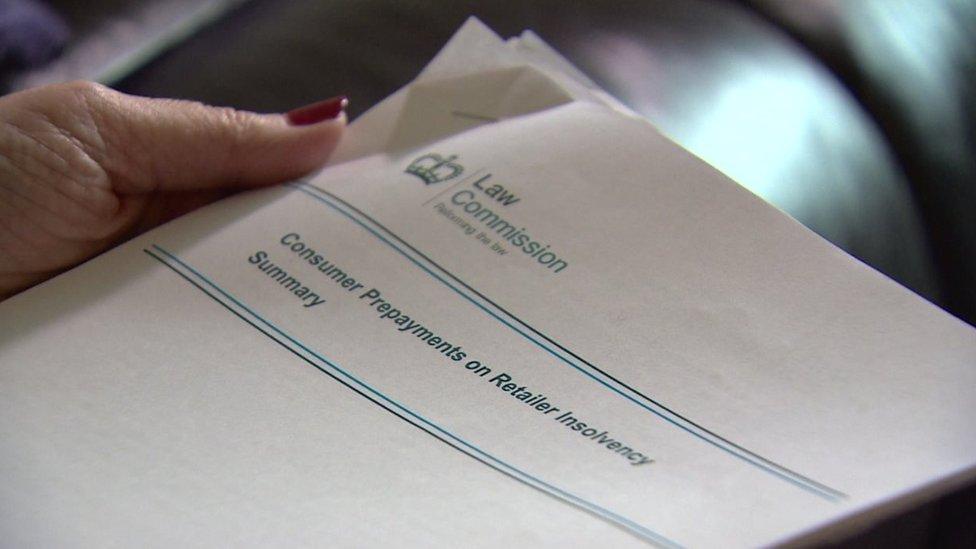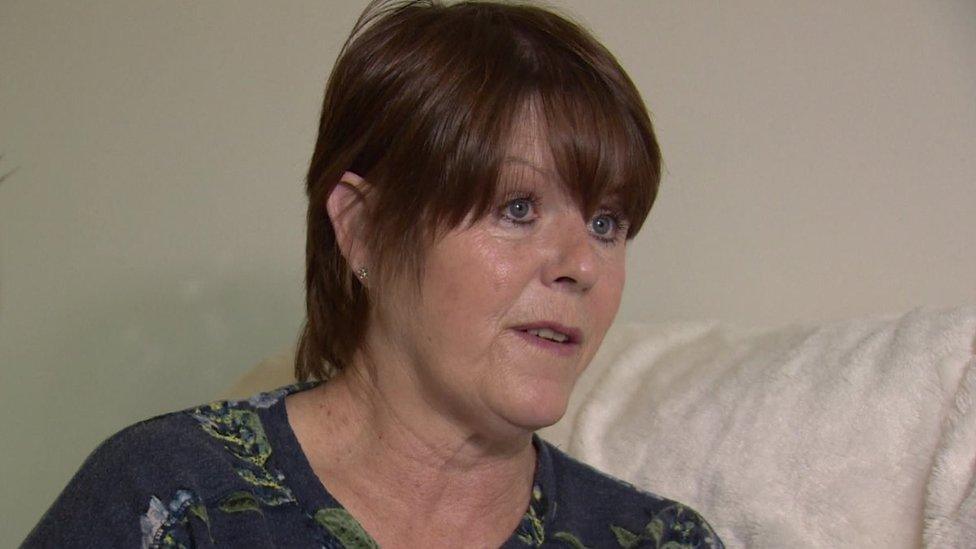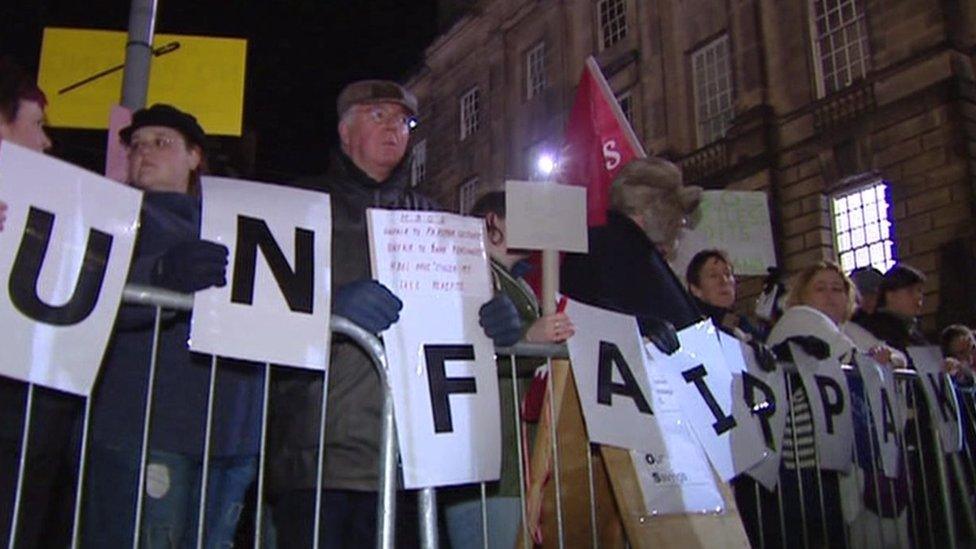Warning of 'another Farepak' savings scandal 10 years on
- Published

Farepak, a Christmas savings club, went bust in 2006
Legal experts have warned there is nothing to stop the collapse of another savings scheme like Farepak.
It is 10 years since the Christmas savings club, which allowed people to spread the cost of food and presents, went bust.
The UK government is considering a report from the Law Commission which recommends new protections are introduced for customers.
The SNP has described the lack of a change in the law as "disappointing".
The Law Commission can only make recommendations for England and Wales, but much of consumer law is reserved to Westminster, so any changes made would affect the whole of the UK.
About 116,000 people, including 30,000 Scots, lost money when the company went out of business in October 2006.
In 2012 liquidators announced customers could eventually receive back up to half of their savings.
The Law Commission has recommended that the most vulnerable consumers be given added protection.

The Law Commission's recommendations:

Regulating Christmas and similar savings schemes, which pose a particular risk to vulnerable consumers
Introducing a general power for government to require prepayment protection in sectors which pose a particular risk to consumers
Giving consumers more information about obtaining a refund through their debit or credit card issuer
Making a limited change to the insolvency hierarchy, to give a preference to the most vulnerable category of prepaying consumers
Making changes to the rules on when consumers acquire ownership of goods.

Stephen Lewis, of the commission, said: "We think that there is a case for them to be advanced up the hierarchy of creditors, so that they rank alongside employees for example.
"They would stand a better chance of getting a more significant payout than at present."
The commission's report also called for Christmas savings schemes to be regulated in the same way as banks.
It added that pre-pay energy customers and those buying new-build homes off-plan were particularly vulnerable, and called for similar protection in those sectors.
Louise McDaid, chairwoman of the Farepak Victims Committee, lost £400 when the company went bankrupt, eventually receiving 32% of that back.
"We want the government to implement some of the recommendations particularly to do with the savings clubs because unfortunately, even after 10 years, this could happen again," she said.
"I find it shocking that consumers can be ripped off even 10 years after Farepak."

Louise McDaid said it was "shocking" consumers could still "be ripped off" 10 years after Farepak
The Institute of Chartered Accountants of Scotland (ICAS) contributed to the Law Commission's report.
It told the commission that savings schemes were often used by the most vulnerable in society.
David Menzies, Director of Insolvency at ICAS, said: "They tend to be used by people on low incomes.
"They are doing the right thing around saving up for Christmas, trying to avoid the debt, and in those circumstances it's clearly right that they should have some form of protection."
But Mr Menzies said that customers should not be given an "ultra-preference beyond other unsecured creditors".
"We would much rather see that the protection is given before they go into insolvency," he added.

Protests were held after the savings club collapsed in 2006, with customers demanding compensation
The SNP's Westminster business spokeswoman Hannah Bardell said she would put pressure on the UK government to change the law.
"Some of the legislation in terms of consumer protection is hundreds of years old which seems incredible given how high-profile things like Farepak were," she said.
"I think it's really disappointing that the law hasn't changed in the ten years since Farepak ruined Christmas for thousands of people."
Mr Lewis added: "Another Farepak could happen and we think that therefore government should be ready, should make regulations and should exercise their powers to protect the consumers."
A spokesman for the Department of Business, Enterprise and Innovation said: "Customers are last in line for refunds when companies go insolvent, so we asked the Law Commission to look at what more could be done to protect them when they pre-pay for goods, buy gift vouchers or contribute to savings schemes.
"The government will respond to the recommendations in due course."
- Published12 October 2014

- Published10 October 2011